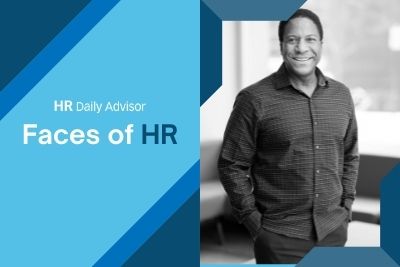Scott Glenn has been involved in the field of human resources (HR) for more than a decade. For our latest Faces of HR profile, we sat down with Scott to discuss how he got his start in the industry, his biggest influences, as well as his “best mistake” and what he learned from it.
“My best mistake was as an inexperienced manager,” he told HR Daily Advisor. “The mistake was trying to manage each person exactly the same. I thought I was being consistent and fair, but quickly found that each person needs something different from their manager.”
Scott began his career in HR in employee relations. He would go on to work in labor relations, recruiting, and talent management. Today, he is Chief People Officer at 4G Clinical – a 400-plus organization that executes the supply chain of a clinical trial.
In our latest Faces of HR, meet Scott Glenn.
How did you get your start in the field?
I got my start in HR working in employee relations (ER). My first significant role was a transition from operations to employee relations. I had some investigations experiences in my operations role which was helpful in conducting ER inquiries.
Who is/was your biggest influence in the industry?
My first boss in my ER role had the biggest influence on me. He had an amazing combination of intellect, kindness, and really understood people and situations. He allowed me to try things, learn, and leverage previous experiences as I developed.
What’s your favorite part about working in the industry? What’s your least favorite part, and how would you change it?
I truly enjoy people information and analytics with the opportunity to take a more scientific approach to people support and company insights. We can help to answer questions regarding – talent gaps, employee performance, team performance, how to best retain talent.
My least favorite part of the job is that it can often be difficult for other leaders to understand the impact that the People organization can have. Taking a more intentional, growth-oriented, consumer-driven approach, in which you invest in your people, will better support change.
It sounds like through your experience you really care about people, and you want to help them feel safe and comfortable, which is important in the industry. Please elaborate here.
The most important element in an organization is the people. You hear this all the time, yet once a company starts to experience success, we often forget that this is the case. An organization does not exist without people.
I care about this because people are the most complex aspect of a company. When they feel the work environment is not safe and comfortable, performance and productivity dips. Management could keep performance high by fostering an unhealthy environment, in which fear drives the results. But I would argue that in these settings you have more “supervision” to ensure things get done. This is not high productivity.
Our industry was forced into thinking about less supervision during the pandemic, and we are required to consider this the future of work. This brings me back to the point of making sure the most complex aspect of any company is the safety and comfort of our people.
How can company leaders make HR a value within their organization?
Company leaders can make the People function of value by holding the Chief People Officer and the People team accountable to deliver results. This means being open to learning more about what the team can (and should) deliver versus simply taking an order and executing tasks.
Where do you see the industry heading in five years? Or are you seeing any current trends?
In the next five years I expect that the industry will elevate the status of the People function. Information and data will be used to create more Organizational Reasoning which People teams will use to select talent that move the function forward. Organizational Reasoning requires People / HR professionals to demonstrate the following skills:
- The ability to determine the signal vs. noise
- Assess situations using data and information
- Engage with and execute processes that drive diagnoses, and reduce diagnostic errors
- Activate ways to effectively solve problems and ensure organizational health
- Show genuine empathy and listening skills to help individuals in their development
This is a similar approach that is used in the medical field and applied to organizations.
What are you most proud of?
I am proud that I am currently and have had the opportunity to be a part of some incredible teams! The lasting relationships, and professional learning that I gained are infinitely important to me.
Do you have any advice for people entering the profession?
Learn what drives the business, be financially literate, dive into the data, and be a lifelong listener and learner.
Anything else you’d like to add? We can talk about anything you’d like to discuss here.
I mention information and data quite a bit. The one thing that I would like to add is that using information and data in a vacuum is not helpful. Relationships with executives, senior leaders, managers, and employees are the first thing that we must focus on for these roles. Context matters, before pointing an analytics approach or tool at a situation. I like to get to know how people interact with the current system and use the data to help me understand more about the individuals, teams, and organization.


